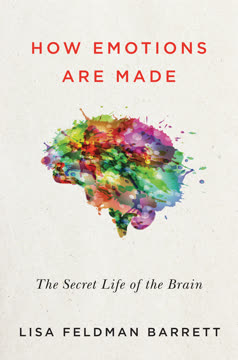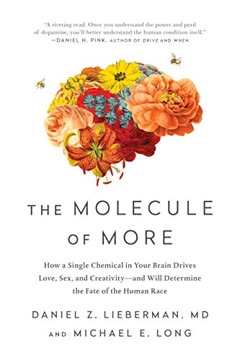Key Takeaways
1. Stress is a physiological response to physical and psychological challenges
"The stress-response can be mobilized not only in response to physical or psychological insults, but also in expectation of them."
Fight-or-flight response: The stress response is a complex physiological reaction that prepares the body to deal with threats. It involves the release of hormones like cortisol and adrenaline, which trigger various bodily changes:
- Increased heart rate and blood pressure
- Redirected blood flow to muscles
- Heightened alertness and focus
- Suppressed digestion and immune function
Psychological stressors: In modern life, the stress response is often triggered by psychological factors rather than physical threats. These can include:
- Work pressures and deadlines
- Financial worries
- Relationship conflicts
- Social anxiety and public speaking
2. The stress response evolved for short-term physical threats, not chronic psychological stress
"If you are that zebra running for your life, or that lion sprinting for your meal, your body's physiological response mechanisms are superbly adapted for dealing with such short-term physical emergencies."
Evolutionary mismatch: Our stress response system evolved to deal with acute physical dangers, like predators or natural disasters. However, in modern society, we face:
- Chronic, low-level stressors
- Psychological and social pressures
- Prolonged activation of the stress response
Harmful effects of chronic stress: When the stress response is constantly activated, it can lead to:
- Wear and tear on bodily systems
- Disrupted sleep patterns
- Impaired cognitive function
- Increased risk of various diseases
3. Chronic stress can lead to various health problems and diseases
"If stressors go on for too long, they can make you sick."
Stress-related health issues: Prolonged exposure to stress hormones can contribute to the development or exacerbation of numerous health problems:
- Cardiovascular diseases (e.g., hypertension, heart disease)
- Metabolic disorders (e.g., diabetes, obesity)
- Gastrointestinal issues (e.g., ulcers, irritable bowel syndrome)
- Mental health disorders (e.g., depression, anxiety)
- Weakened immune system
Mechanisms of stress-induced damage: Chronic stress can harm the body through various pathways:
- Inflammation
- Oxidative stress
- Disrupted hormone balance
- Impaired cellular repair processes
4. Stress affects multiple bodily systems, including cardiovascular, metabolic, and immune
"The stress-response is about preparing your body for an explosive burst of energy consumption right now; psychological stress is about doing all the same things to your body for no physical reason whatsoever."
Cardiovascular effects: Stress can impact heart health by:
- Increasing blood pressure and heart rate
- Promoting atherosclerosis (hardening of arteries)
- Triggering arrhythmias and heart attacks
Metabolic consequences: Chronic stress disrupts metabolism through:
- Elevated blood sugar levels
- Increased fat storage, especially around the abdomen
- Insulin resistance and increased diabetes risk
Immune system changes: Stress can alter immune function by:
- Suppressing overall immune response
- Increasing inflammation
- Reactivating latent viruses (e.g., herpes)
5. Individual differences in personality and coping styles influence stress responses
"We differ in the psychological filters through which we perceive the stressors in our world."
Personality factors: Certain personality traits can affect how individuals perceive and respond to stress:
- Type A personality (competitive, impatient)
- Neuroticism and anxiety proneness
- Optimism vs. pessimism
Coping strategies: Different approaches to dealing with stress can impact its effects:
- Problem-focused coping (addressing the stressor directly)
- Emotion-focused coping (managing emotional reactions)
- Avoidance coping (ignoring or escaping the stressor)
Resilience: Some individuals are more resistant to the negative effects of stress due to:
- Strong social support networks
- Effective stress management skills
- Positive outlook and sense of purpose
6. Social factors like socioeconomic status impact stress levels and health outcomes
"If you want to increase your chances of avoiding stress-related diseases, make sure you don't inadvertently allow yourself to be born poor."
Socioeconomic disparities: Lower socioeconomic status is associated with:
- Higher levels of chronic stress
- Increased exposure to environmental stressors
- Limited access to resources for stress management
Health inequalities: Social factors contribute to disparities in health outcomes:
- Higher rates of stress-related diseases in disadvantaged populations
- Reduced life expectancy in lower socioeconomic groups
- Intergenerational transmission of stress and health risks
Social determinants of health: Various social factors influence stress and health:
- Education level
- Occupational status
- Neighborhood environment
- Social support and community connections
7. Stress management techniques can help mitigate the negative effects of chronic stress
"Stress management cannot consist merely of the simpleminded solution of 'Maximize control. Maximize predictability. Maximize outlets for frustration.'"
Stress reduction strategies: Various techniques can help manage stress:
- Mindfulness and meditation
- Regular exercise
- Adequate sleep and nutrition
- Time management and prioritization
Cognitive approaches: Changing thought patterns can reduce stress:
- Cognitive restructuring (challenging negative thoughts)
- Developing a growth mindset
- Practicing gratitude and positive thinking
Lifestyle changes: Modifying daily habits can improve stress resilience:
- Limiting caffeine and alcohol intake
- Engaging in hobbies and leisure activities
- Cultivating strong social connections
- Seeking professional help when needed (e.g., therapy, counseling)
Last updated:
FAQ
What's Why Zebras Don't Get Ulcers about?
- Focus on Stress and Health: The book explores the relationship between stress and health, particularly how chronic stress can lead to various diseases.
- Mind-Body Connection: It highlights the intricate connections between emotions, personality, and physical health, emphasizing the importance of understanding stress for managing health.
- Scientific Insights: Sapolsky combines personal anecdotes with scientific research to make complex ideas accessible, demystifying the science behind stress and its effects on the body.
Why should I read Why Zebras Don't Get Ulcers?
- Understanding Stress: The book provides insights into how stress affects your body and mind, helping you recognize signs of stress-related illnesses.
- Practical Applications: It includes practical advice on managing stress, which can improve your overall well-being.
- Engaging Writing Style: Sapolsky's narrative style blends humor with serious scientific discussion, making it enjoyable for both casual readers and those interested in psychology and health.
What are the key takeaways of Why Zebras Don't Get Ulcers?
- Stress Can Make You Sick: Chronic stress can lead to health issues like cardiovascular disease and immune dysfunction due to prolonged activation of the stress-response system.
- Role of Hormones: Hormones like glucocorticoids and epinephrine are involved in the stress response and can negatively impact health when activated too frequently.
- Importance of Social Support: Social connections and emotional support are crucial in coping with stress and mitigating its adverse effects on health.
How does stress affect the immune system according to Why Zebras Don't Get Ulcers?
- Immunosuppression During Stress: Stress can suppress immune function, making individuals more susceptible to infections and diseases.
- Temporary Immune Activation: The immune system can be temporarily activated during the initial phase of stress, but prolonged stress leads to a decline in immune function.
- Connection to Disease: Chronic stress-induced immunosuppression can increase the risk of autoimmune diseases and infections, highlighting the need for stress management.
What is the relationship between stress and gastrointestinal disorders in Why Zebras Don't Get Ulcers?
- Impact on Digestion: Stress disrupts normal digestive processes, leading to conditions like irritable bowel syndrome (IBS).
- Functional vs. Organic Disorders: Stress can exacerbate symptoms in functional gastrointestinal disorders, which are sensitive to stress.
- Mechanisms of Stress-Induced Symptoms: Stress increases contractions in the colon, causing discomfort and pain, illustrating the interplay between psychological stress and physical health.
How does Why Zebras Don't Get Ulcers explain the concept of allostasis?
- Definition of Allostasis: Allostasis is the process by which the body achieves stability through change, adapting to stressors by altering physiological parameters.
- Stress Response Mechanism: During stress, the body mobilizes resources to meet immediate demands, which can lead to health issues if activated too frequently.
- Allostatic Load: The cumulative wear and tear on the body due to chronic stress is known as allostatic load, emphasizing the importance of stress management.
What are the best quotes from Why Zebras Don't Get Ulcers and what do they mean?
- "Stress can make you sick.": This quote highlights the direct impact of stress on physical health, emphasizing the importance of managing stress to prevent illness.
- "You cannot really understand a disease in vacuo, but rather only in the context of the person suffering from that disease.": It advocates for a holistic approach to medicine, considering individual experiences and psychological factors.
- "Science is not meant to cure us of mystery, but to reinvent and reinvigorate it.": This reflects Sapolsky's belief in the beauty of science and its role in enhancing our understanding of complex phenomena like stress.
How does Why Zebras Don't Get Ulcers address the effects of stress on reproduction?
- Disruption of Hormonal Balance: Stress can lead to hormonal imbalances that disrupt reproductive functions in both males and females.
- Impact on Sexual Behavior: Stress negatively affects sexual desire and performance, impacting intimate relationships.
- Long-Term Consequences: Chronic stress can lead to infertility or complications during pregnancy, highlighting the importance of managing stress for reproductive health.
What is the significance of prenatal stress in Why Zebras Don't Get Ulcers?
- Impact on Fetal Development: Prenatal stress can lead to long-term health issues in offspring, including increased risks of metabolic syndrome and cardiovascular disease.
- Mechanisms of Programming: Stress hormones can cross the placenta, affecting fetal development and leading to changes in hormone levels and metabolic responses.
- Importance of Maternal Care: Supportive environments can help counteract the negative impacts of stress on fetal development.
How does Why Zebras Don't Get Ulcers explain the concept of stress-induced ulcers?
- Role of Helicobacter pylori: While bacteria play a significant role in ulcer formation, stress still contributes to their development.
- Mechanisms of Ulcer Formation: Stress increases acid production and impairs healing processes, exacerbating existing conditions.
- Psychological Factors: Stress can lead to unhealthy coping mechanisms like smoking or excessive drinking, further increasing ulcer risk.
How can I manage stress according to Why Zebras Don't Get Ulcers?
- Understanding Stressors: Identifying and understanding personal stressors is crucial for developing effective coping strategies.
- Stress Management Techniques: Techniques like mindfulness, exercise, and social support can help mitigate the physiological effects of stress.
- Long-Term Lifestyle Changes: Improving diet, fostering social connections, and engaging in regular physical activity can enhance overall well-being and resilience to stress.
How does Why Zebras Don't Get Ulcers relate stress to societal factors?
- Socioeconomic Status (SES): Lower SES is associated with higher stress levels and poorer health outcomes.
- Social Inequality: Disparities in wealth can lead to increased stress and health risks.
- Community Support: Strong community ties can help buffer against the negative effects of stress, emphasizing the importance of social capital.
Review Summary
Why Zebras Don't Get Ulcers is highly praised for its engaging and humorous approach to explaining the science of stress. Readers appreciate Sapolsky's ability to make complex topics accessible. Many found the book eye-opening and helpful in understanding their own stress responses. While some wished for more practical advice on managing stress, most valued the in-depth exploration of stress's physiological effects. A few readers noted dated language regarding non-Western cultures. Overall, the book is widely recommended for its insightful and entertaining examination of stress biology.
Similar Books









Download PDF
Download EPUB
.epub digital book format is ideal for reading ebooks on phones, tablets, and e-readers.










